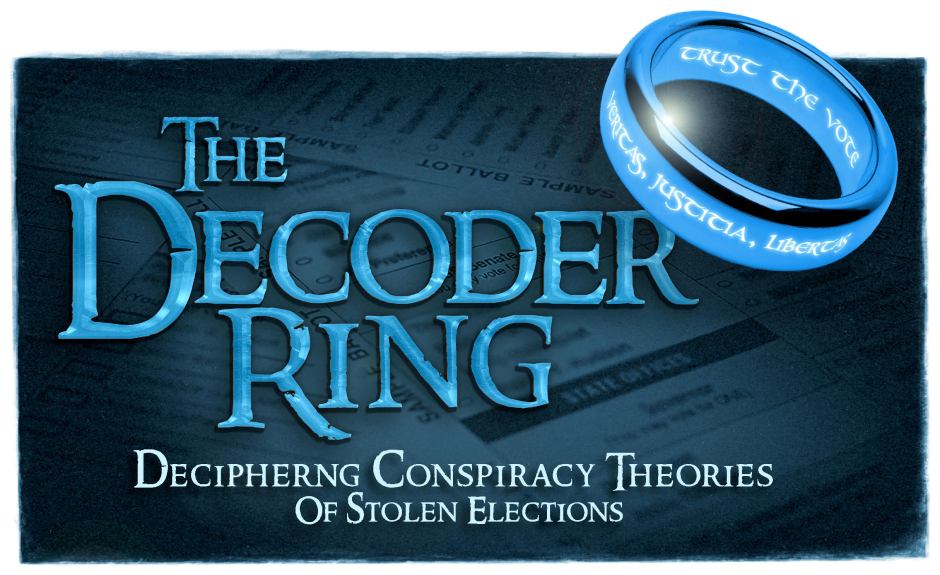Election-Stealing Voting Machines Theories: Secret Decoder Ring, Part 3
John Sebes
Part 3 of 3
I’m back again with my final entry in the Secret Decoder Ring series that you can use to decode and discard pretty much any theory along the lines of “Election 2020 Stolen via Fancy Technology.” Like all good trilogies, this Part 3 builds on the other two, and as a result is shorter! (But with an appendix, of course.)
- In Part 1, I explained how it is reasonable to worry about conspiracies of election officials to steal an election, but not reasonable to worry about them using complicated tech as the means to do so. Much easier methods (methods less likely to get detected as well) are available.
- In Part 2, we looked at the variation in which the election officials are honest, but the voting system software is crooked, built by Evil Software creators at voting system vendors, to intentionally steal elections under the noses of the honest election officials. In many walks of life, Evil Software is a real concern, but in the specific cases of elections, there are specific audit processes done specifically to detect and correct when Evil Software (or just buggy software, of which there is a lot) has produced a wrong election result.
Here in this final part, l cover the next variant: where the evil doers are neither election officials nor voting system vendors, but nation state adversaries who have the ability to hack the election technology and steal the election.
That’s probably the sexiest story, and in some ways the most credible, because we know that we really do have nation state adversaries intent on messing with US elections, and who have previously attacked election infrastructure (voter registration systems).
It’s also credible because it’s now widely understood that voting systems are in fact easy to hack. How not? The central brains of a voting system, the election management system (EMS) is just ordinary software running on a Windows PC.
Even if the voting system software were completely free of security vulnerabilities (which is not the case, as many tests and inspections have shown), the underlying Windows software has vulnerabilities that enable it to be hacked, and then attack the software running on it, whether EMS or ballot counting software.
Again, the issue is not the potential for such attacks, but the ability for attackers to succeed and not get caught, to succeed in stealthily stealing an election. Would those expert level hackers be able to do that?
Here is the common sense reason to be skeptical of these stories.
All these hypothetical hacks are just means to inject Evil Software into voting systems. Just as in Part 2, it’s really hard for Evil Software to not get caught, when honest election officials are checking the work of the software (from honest voting system vendors) by auditing the paper ballots, in order to detect malfunction whether Evil or otherwise.
Everything in Part 2 applies here as well. It just doesn’t matter whether the hypothetical Evil Software was built-in by evil voting system vendors, or injected later (via a successful hack, or cyber attack) by nefarious hackers of foreign nations. Either way, Evil Software has to read minds and predict the future, in order to not get caught during pre-election testing or post-tabulation audits.
Those pre- and post- checks do not protect us from the existence of Evil Software (there can always be Evil Software), but these checks do protect us from Evil Software not being detected even as it successfully steals an election. So yes, we face world class computer hackers; however, they cannot hack paper ballots (or the manual process of auditing those ballots.) Given that extra fact from election-land, you can use your common sense to realize that when our election officials perform their paper-ballot duties properly, the best hackers in the world cannot get away with an undetected and uncorrected exploit.
And that’s it for the big three myths about elections stolen via technology.
But wait, there’s some more: an appendix (coming soon) with two more sober points: 1) what our adversaries can do to attack our democratic elections, and 2) what you, the reader can do to help.
— EJS




